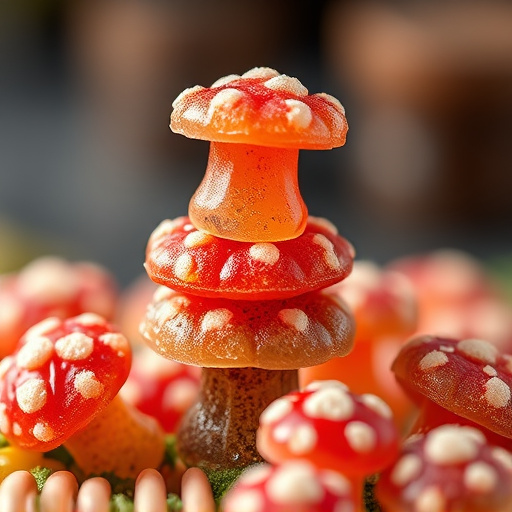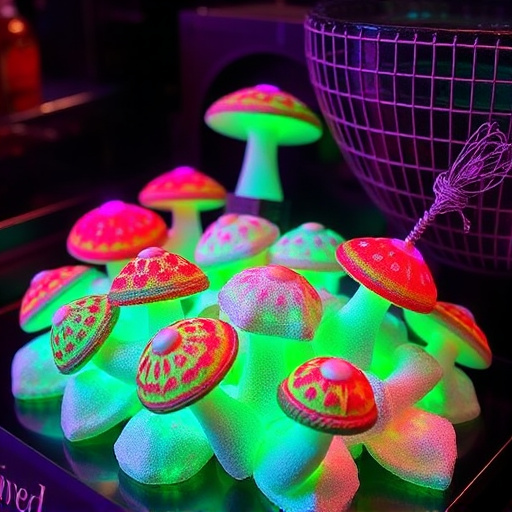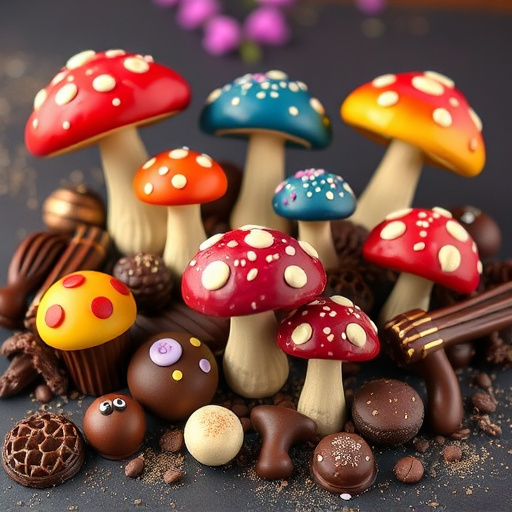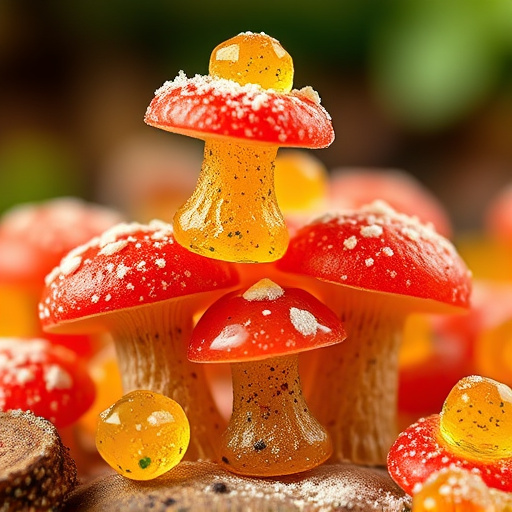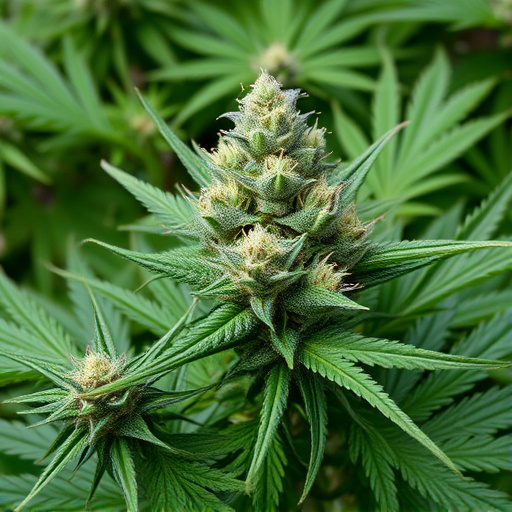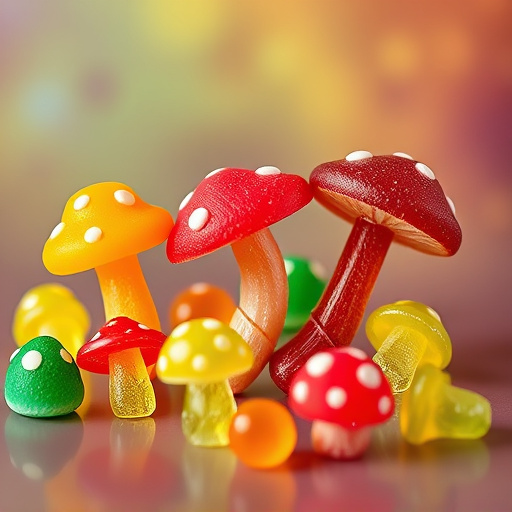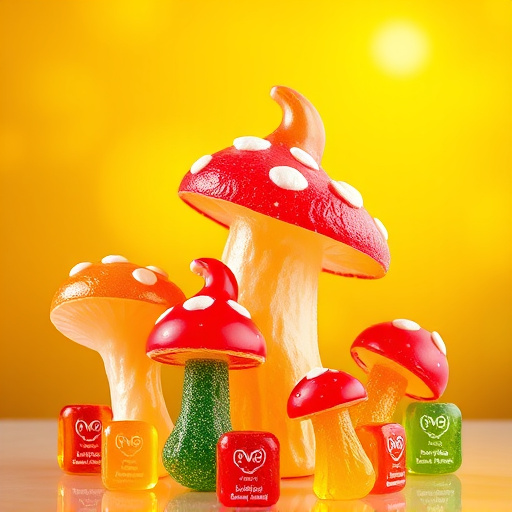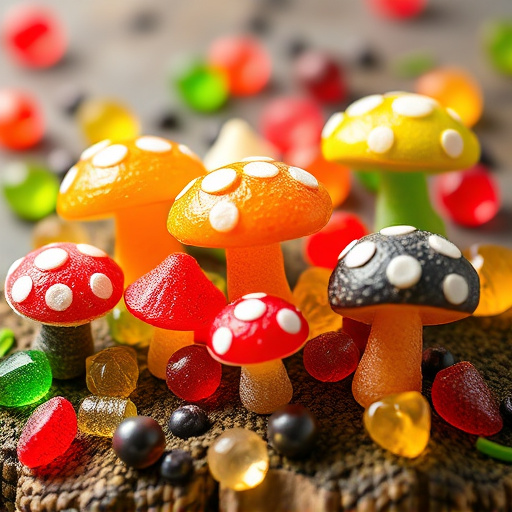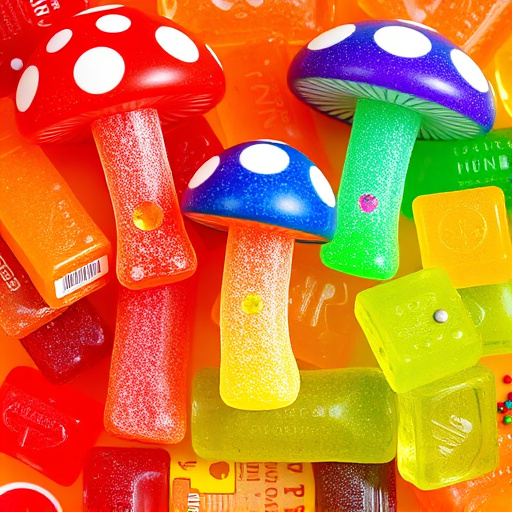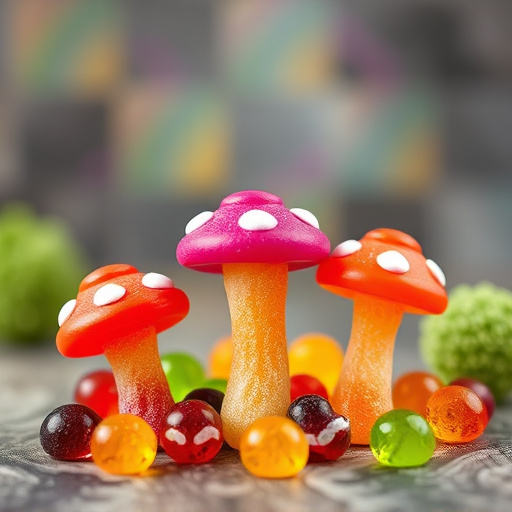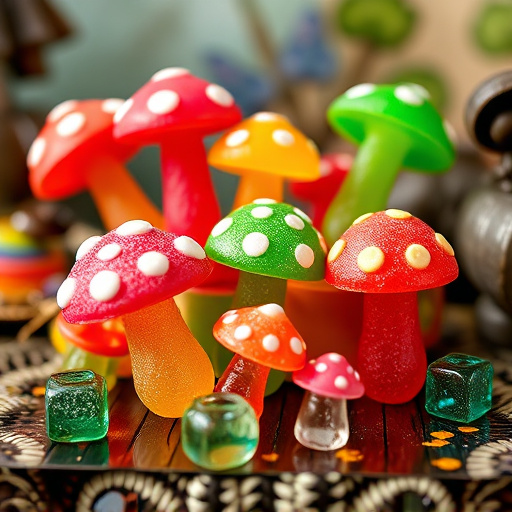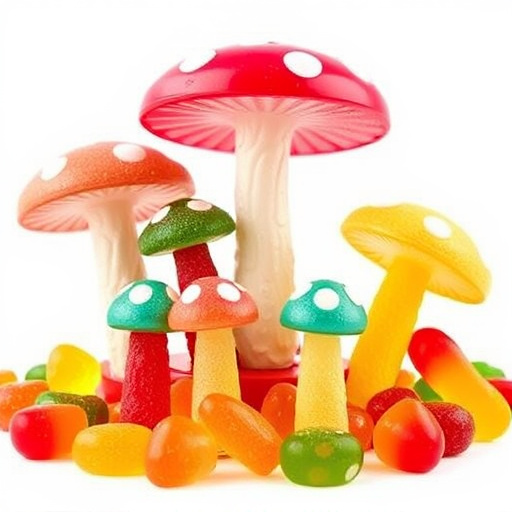Magic Mushroom Gummies, an innovative edible form of psilocybin, offer a sweeter way to explore altered mental states and enhance brain function. Containing the active compound found in magic mushrooms, these gummies interact with serotonin receptors, leading to potential therapeutic benefits for depression, anxiety, and PTSD. Research highlights their ability to stimulate neural connections and promote neuroplasticity, while users often experience heightened creativity, relaxation, and emotional insights lasting 4-6 hours. However, proper dosage understanding is crucial due to the risk of inducing anxiety or paranoia, emphasizing the importance of safe, reliable sources for exploring brain function through Magic Mushroom Gummies.
“Unleash the mind-bending potential of Magic Mushroom Gummies and their intriguing impact on brain function. This comprehensive guide explores the scientific behind these innovative products, featuring the active compound psilocybin. We delve into the evolving legal landscape, revealing where to procure them safely, from reputable online platforms to specialized stores. Armed with knowledge on dosage, precautions, and potential side effects, readers can navigate this burgeoning market responsibly, ensuring a safe and enlightening experience.”
- Understanding Magic Mushroom Gummies and Their Effects on Brain Function
- – A brief explanation of magic mushrooms and their active compounds (psilocybin)
- – How psilocybin interacts with the brain and its potential therapeutic benefits
Understanding Magic Mushroom Gummies and Their Effects on Brain Function
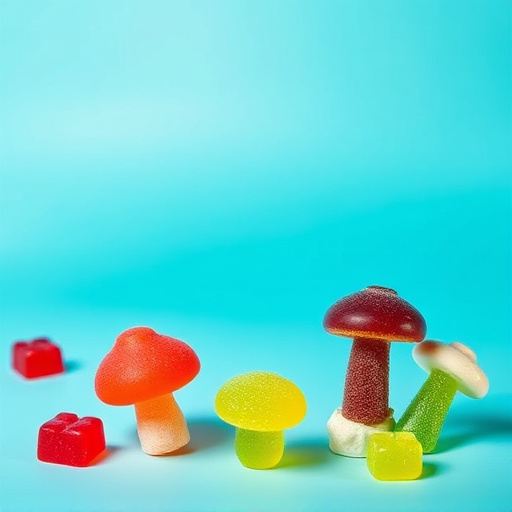
Magic Mushroom Gummies are a modern twist on traditional psilocybin mushrooms, offering a convenient and often sweeter alternative for those interested in exploring their mind-altering effects. These gummies contain psilocybin, a natural compound known for its psychological and neurochemical properties. When consumed, psilocybin interacts with serotonin receptors in the brain, leading to altered thoughts, heightened senses, and increased creativity. Research suggests that magic mushroom gummies could have therapeutic benefits for mental health conditions like depression and anxiety, as they may stimulate neural connections and promote neuroplasticity.
The effects on brain function are profound yet temporary, typically lasting 4-6 hours. Users often report enhanced emotional experiences, better problem-solving abilities, and a sense of relaxation or euphoria. However, it’s crucial to approach these gummies with caution as they can also induce anxiety or paranoia in some individuals. The strength and potency of magic mushroom gummies can vary widely, so understanding the dosage and seeking reliable sources is essential for a safe and positive experience.
– A brief explanation of magic mushrooms and their active compounds (psilocybin)
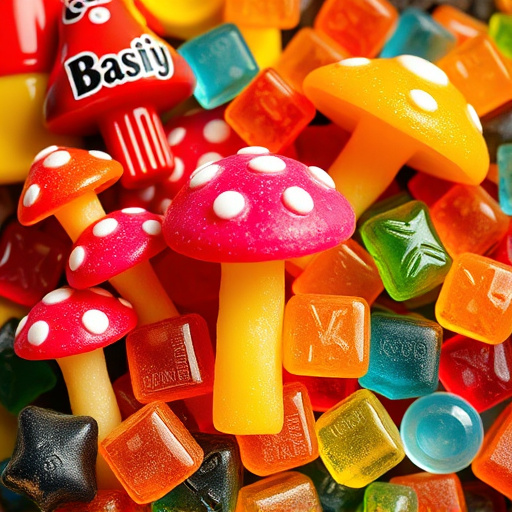
Magic mushrooms, scientifically known for their psilocybin content, are fungi that have been used for centuries in various cultural practices for their psychoactive properties. This compound, when consumed, affects brain function by interacting with serotonin receptors, leading to altered thoughts, sensations, and moods. Recent studies have explored the potential therapeutic benefits of psilocybin not just in treating mental health conditions but also in enhancing creativity and opening up new perspectives.
The active compounds in magic mushrooms have sparked interest in the development of edible forms, notably Magic Mushroom Gummies. These gummies offer a convenient and discrete way to experience the effects of psilocybin while providing potential relief for anxiety, depression, and even chronic pain. The rise in demand for these products has led to their availability online and in specialized retail stores, catering to those seeking alternative approaches to brain function modulation and well-being.
– How psilocybin interacts with the brain and its potential therapeutic benefits
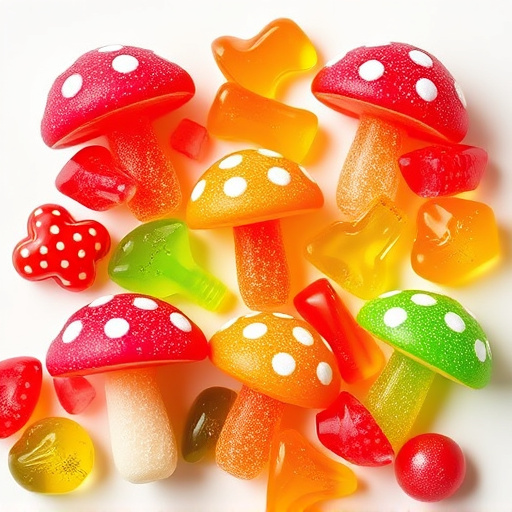
Psilocybin, the active compound found in magic mushrooms, is a powerful psychotropic substance that has gained significant attention for its potential therapeutic effects on brain function. When consumed, psilocybin undergoes a chemical transformation within the body, converting into psilocin, which interacts with serotonin receptors in the brain. This interaction triggers a range of experiences, often referred to as a “trip,” characterized by altered perceptions, enhanced creativity, and profound emotional insights.
Research suggests that psilocybin can have positive impacts on mental health conditions such as depression, anxiety, and post-traumatic stress disorder (PTSD). By facilitating a state of heightened awareness and introspection, magic mushroom gummies—a popular edible form—can enable individuals to explore their minds, process traumatic memories, and gain new perspectives. This unique interaction with the brain’s serotonin system may hold the key to unlocking therapeutic benefits for various psychological ailments, making it an increasingly interesting area of study in the field of neuropsychopharmacology.
Magic mushroom gummies, an innovative delivery method for psilocybin, offer a unique way to explore potential therapeutic benefits for brain function. By combining the power of mushrooms with confectionery, these gummies provide an accessible entry point into the realm of psychedelic-assisted therapy. However, it’s crucial to emphasize that purchasing such products should be done responsibly and legally through reputable sources, ensuring safety and quality. Understanding the science behind psilocybin and its interaction with the brain is a vital step in navigating this evolving field.
